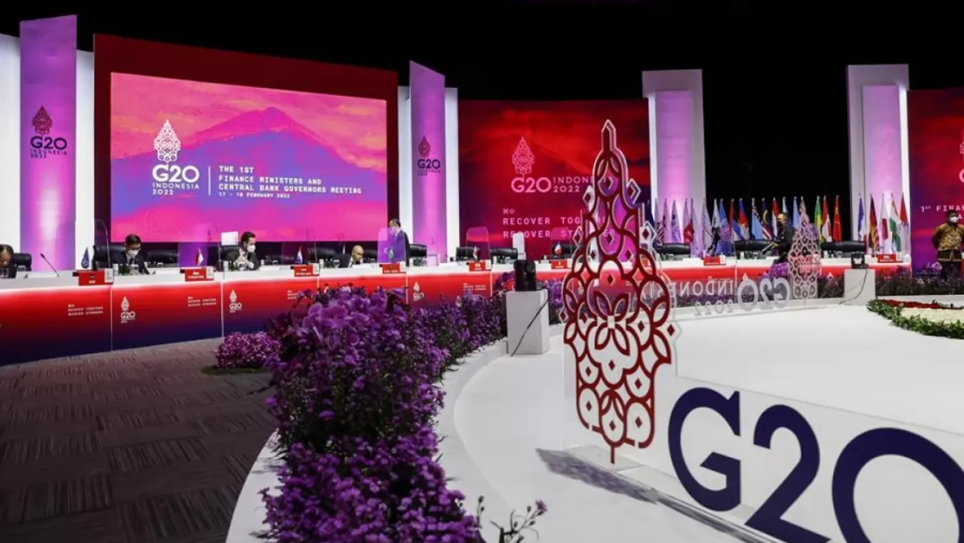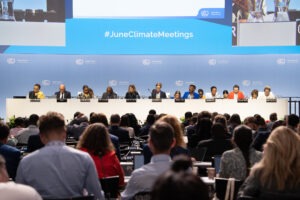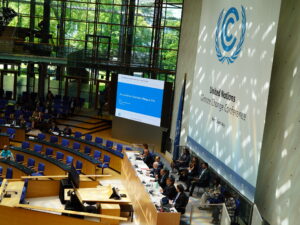The G20 economies account for about 80 percent of global GDP and are responsible for about 80 percent of global greenhouse gas emissions, largely related to the energy sector. In 2021, the G20 under the leadership of Italy reached important agreements on key climate and energy issues, which paved the way for a successful COP26 in Glasgow.
The Indonesian-led G20 Leaders’ Summit in Bali on Nov. 15 and 16 is a key opportunity for these countries to discuss new ways of cooperating to address global crises such as energy security and food security, and to make real progress on their responsibilities and actions to counter climate change.
Ministerial meetings held throughout the year have been dominated by geopolitical tensions arising from the Russian invasion of Ukraine, closing off any space to agree on new common solutions capable of addressing the multiple global crises plaguing the planet. Weak commitments and broken promises are thus the G20’s meager record to date. The conflict-induced energy crisis has also shown all the security, economic and social risks of Europe’s deep dependence on gas.
1.5 and fossil fuels
With only a few days to go before the end of COP27 in Sharm El-Sheikh, the G20 Summit is a key opportunity to influence the outcome of the COP. First and foremost, leaders have a responsibility to avoid backtracking from what was agreed at last year’s G20 in Rome, recognizing the centrality of climate on the international agenda, reconfirming the goal of limiting global average temperature rise to within 1.5 degrees Celsius, reviving efforts to reduce the use of coal as an energy source, and accelerating the elimination of fossil fuel subsidies. But the G20 should quickly readjust its focus on reducing all fossil fuels, including oil and gas, for a transition that is safe, just and in line with climate goals.
In addition, the G20 is a key moment for coordinating the efforts needed to close the financial gap and support countries in their energy transitions-expected in this regard are new partnerships with Indonesia and probably Vietnam built on the South African example. New innovative forms of support are also needed to address adaptation needs and loss and damage from climate change impacts, central themes in Sharm.
Finance
It is the discussion of finance that will be the measure of the G20’s real ability and political will to counter climate change with tools appropriate to the challenge. The G20 should recognize that climate finance flows remain inadequate to finance the transition to a future compatible with the 1.5-degree Celsius target, and a new common financial pathway must be charted to secure that goal.
What is needed is a strong political mandate from leaders-as major “shareholders in the Multilateral Development Banks”-to reform the global financial architecture and expand the financing capacities of key international financial institutions to support climate action in developing countries.
Specifically, increasing the scale of renewable energy financing by setting ambitious targets for clean infrastructure investments, including flexible power grids and storage capacity, is a priority.
Following the recommendations of the Capital Adequacy Framework report commissioned by the Italian G20 presidency in 2021, Multilateral Development Banks and, among them, the World Bank, must also increase risk tolerance by adjusting internal rules as soon as possible to allow them to increase lending and take reasonable risks, stimulating increased private financing and unlocking increasing amounts of capital to serve the transition.
The elimination of fossil fuel financing should be another key step in the transformation of the International Financial Institutions toward a more effective commitment to combating climate change. The call for the publication of their plans to phase out direct and indirect support for fossil fuels and for a gradual reorientation of investments to support renewable energy should be a clear and common outcome of the Bali Summit.
Similarly, it is essential that these institutions substantially increase the flow of funding for climate change adaptation. Governments should press for adaptation, resilience, and vulnerability to be at the center of their operations, allocating 50 percent of climate funding to adaptation.
Italy’s new government to the G20 test
The G20 in Bali will be President Meloni’s first summit. A chance to revive international and economic relations with Asian partners, including the difficult relationship with China. While recognizing each other’s diversity and national interests, the G20 offers an opportunity to affirm the government’s international agenda through the revitalization of climate action aligned with key national strengths.
Italy comes to this appointment with solid politico-diplomatic credibility built on the successes of the Italian G20 presidency, which, however, will need to be reinforced with new concrete commitments:
- Announcing Italy’s participation in supporting the Just Energy Transition Partnerships launched by the G7 and readiness to open new partnerships with Mediterranean countries.
- Committing to reallocate $1 billion of the $4 billion in “Special Drawning Rights” available for the International Monetary Fund’s Resilience and Sustainability Trust, which provides concessional climate finance to the poorest countries.
- Implementing Italy’s commitment made at COP26 in Glasgow to end direct international public support for fossil fuels by the end of 2022, except in limited and clearly defined circumstances consistent with the 1.5-degree global warming limit and the goals of the Paris Agreement, by adopting a national policy to eliminate fossil guarantees through the key role of SACE.
- Lastly, expressing full support for the demands “of the Bridgetown Agenda” particularly the call for the issuance of new Special Drawing Rights worth at least $650 billion and expressing willingness to work jointly with Barbados Prime Minister Mia Mottley for its implementation.
IMAGE CREDIT – G20 Indonesia Presidency.






